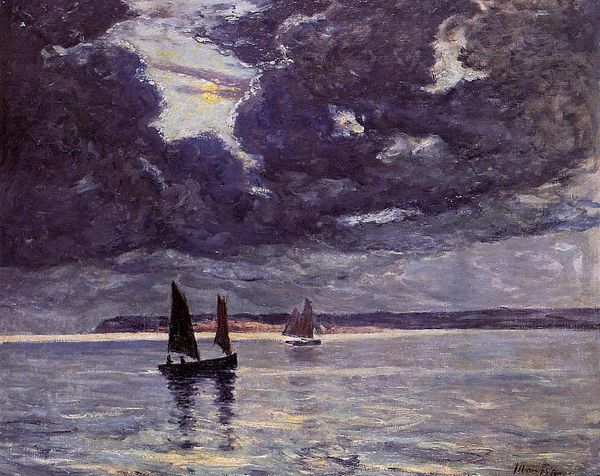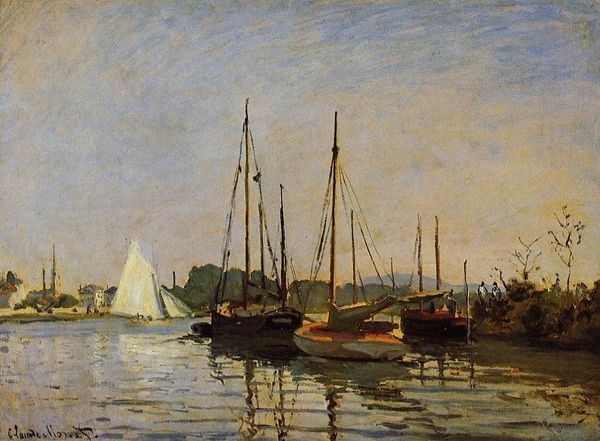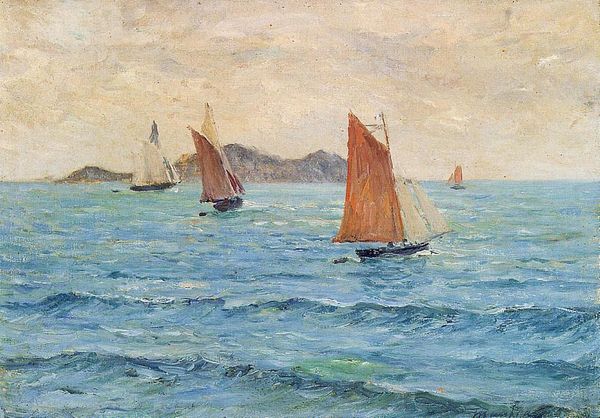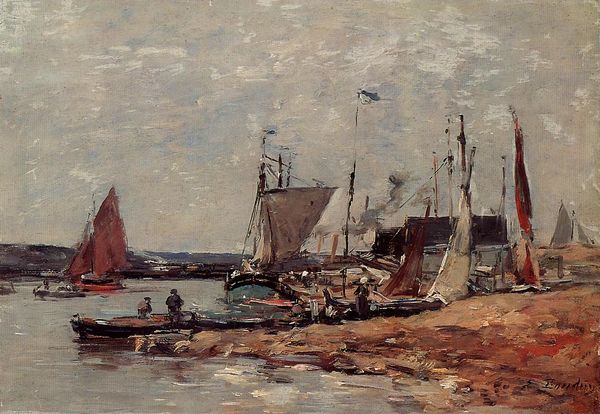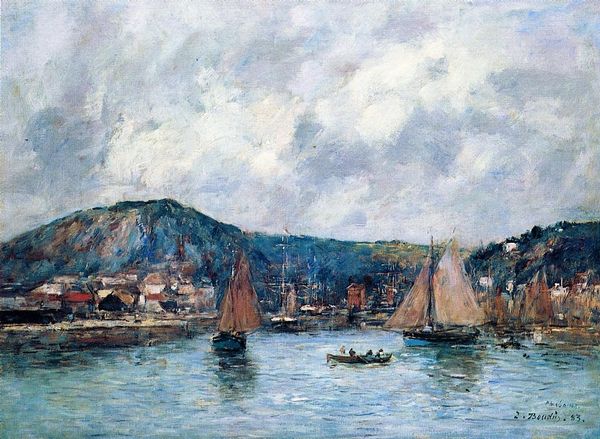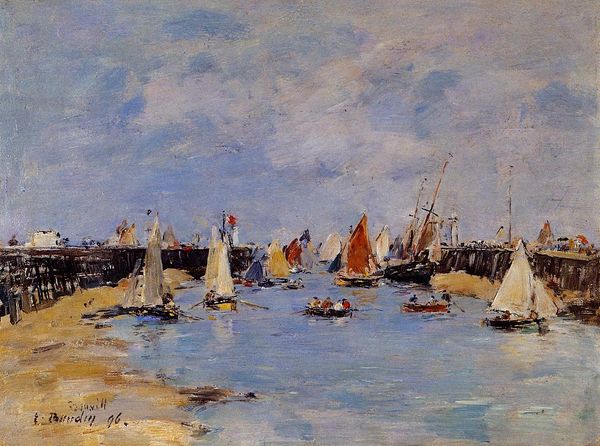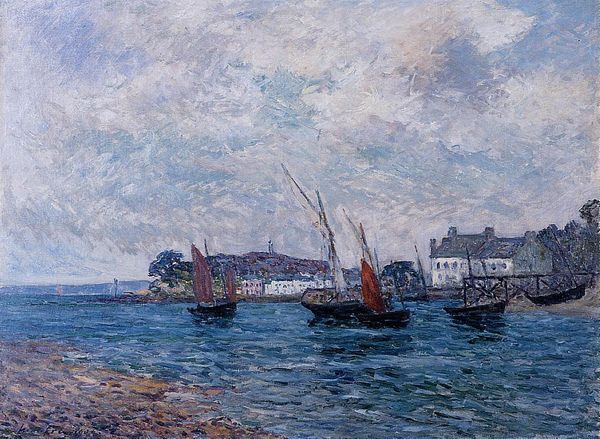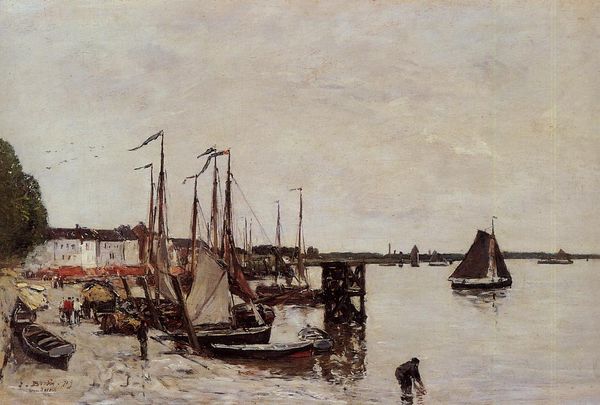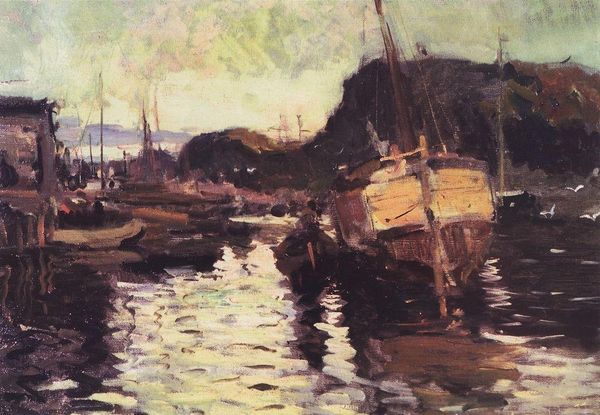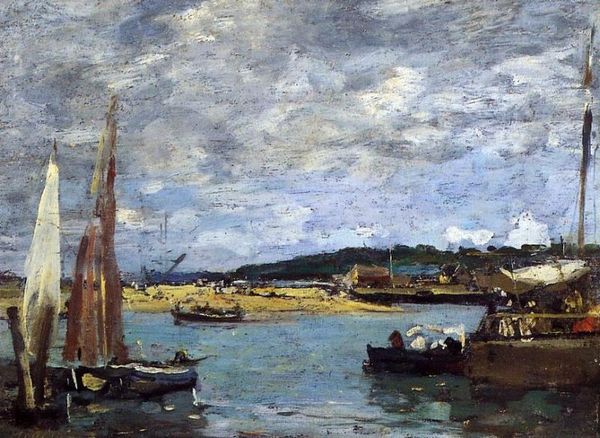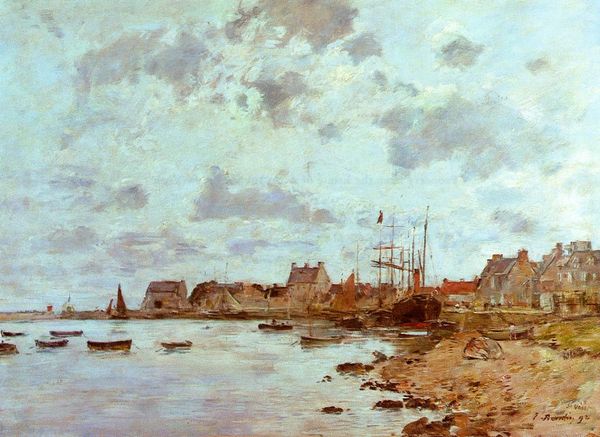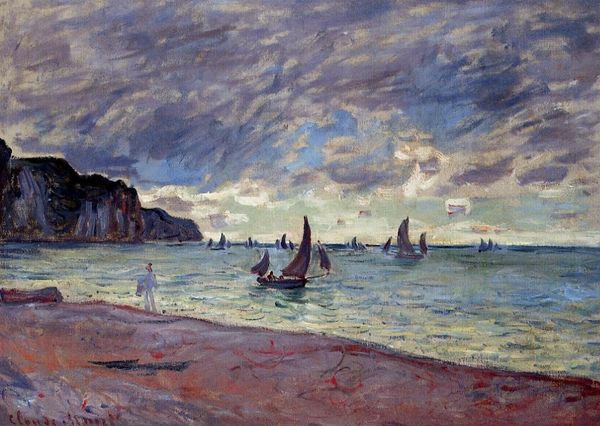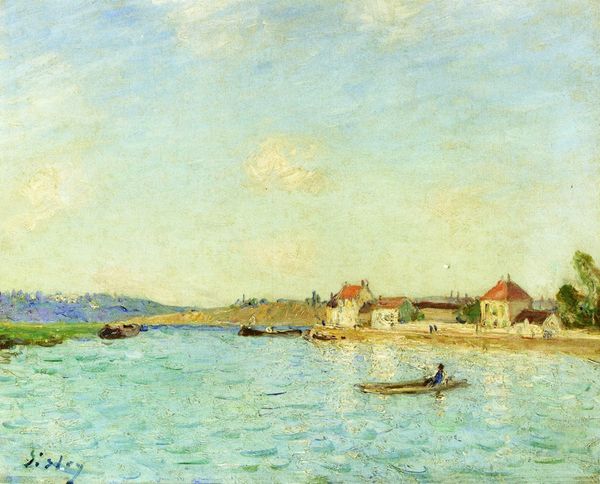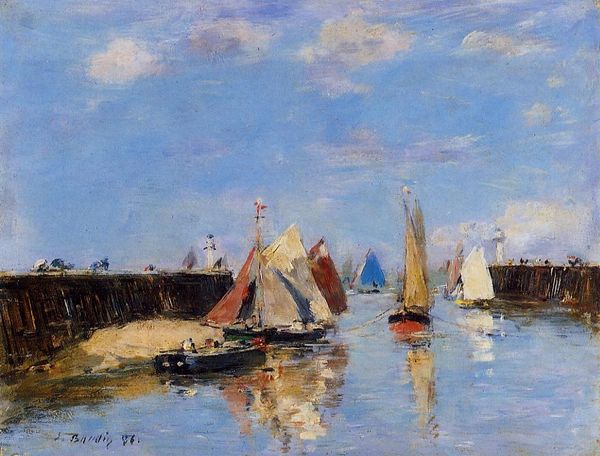
Copyright: Public domain
Maxime Maufra's oil on canvas painting captures the Isle of Brehat, likely painted in the late 19th or early 20th century. Maufra, part of the Post-Impressionist movement in France, often depicted landscapes reflecting the changing social and economic conditions of rural life. This work, with its focus on the harbor and working boats, evokes a sense of place deeply tied to the maritime economy of Brittany. The rise of tourism and artists' colonies reshaped such regions; Maufra himself settled in Brittany and painted its changing landscape. His impressionistic style, while aesthetically pleasing, also serves as a document of a specific time and place, marking the intersection of tradition and modernity. Art historians use local archives, economic data, and studies of tourism to reveal the historical context behind such images. These resources help us understand how art reflects and shapes our understanding of social change.
Comments
No comments
Be the first to comment and join the conversation on the ultimate creative platform.
